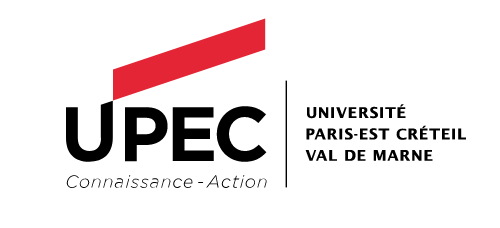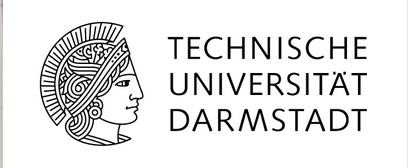Vorticity, Rotation and Symmetry (V) – Global Results and Nonlocal Phenomena
Vorticité, Rotation et Symétrie (V) – Résultats Globaux et Phénomènes Nonlocaux
26 – 30 October 2020
|
Scientific Committee
Comité scientifique Sylvie Benzoni-Gavage (ENS Lyon) |
Organizing Committee
Comité d’organisation Raphaël Danchin (Université Paris-Est Créteil Val-de-Marne) |
|
Vorticity, Rotation and Symmetry (V) – Global Results and Nonlocal Phenomena is the fifth edition of a series of previous international conferences entitled Vorticity, Rotation and Symmetry (I)-(IV) which took place at CIRM in Luminy in 2008, 2011,2014, and 2017, respectively. From the very beginning, these conferences focusing on various aspects of mathematical fluid dynamics have gathered organizers from three different countries : the Czech Republic, France and Germany, that have very strong schools on that topic. In just a few years, Vorticity, Rotation and Symmetry conferences became highly appreciated along with similar (older) conference series at e.g. Mathematisches Forschungsinstitut Oberwolfach (Germany) and Banach Center (Poland).
In contrast to the previous meetings, this workshop will mainly focus on “global results” in mathematical fluid mechanics and on the impact of genuinely “nonlocal terms”. By our idea, • global results will encompass the analysis of asymptotic decay of solutions in space and/or time and of the asymptotic structure, as well as the dynamical systems point of view. We also have in mind the issues of global-in-time regularity and non-uniqueness for the incompressible Navier-Stokes equations, that despite being still open questions, generated a number of exciting new results and approaches. The second main topic on • nonlocal phenomena in fluid mechanics goes far beyond the non-locality of the pressure function of the Stokes equations. As a matter of fact, it is inherent for several types of non-Newtonian fluids as well as active equations like the (surface) quasi-geostrophic equations acting e.g. as a scalar model for 2D/3D Navier-Stokes and for 3D Euler equations. Nonlocal effects are typical for many flow models due to fractional diffusivity or state equations based on Riesz operators. They are also naturally appear in mathematical biology when modeling flocking and aggregation. The conference will bring together 60 – 70 scientists from various branches of mathematical fluid dynamics all over the world, with focus on global and nonlocal phenomena. Young researchers will have a place of honor in the program. We are planning to publish conference proceedings in an international journal as we did for the last four conferences in this series. |
Vorticité, Rotation et Symétrie (V) – Résultats globaux et phénomènes non locaux est la cinquième édition de la série de conférences internationales “Vorticité, rotation et symétrie” qui s’est tenue au CIRM en 2008, 2011, 2014 et 2017. Depuis le début, ces conférences consacrées aux aspects mathématiques de la mécanique des fluides sont organisées par trois pays différents : l’Allemagne, la France et la République tchèque, qui ont une longue tradition de recherche sur ce sujet. En quelques années, les conférences “Vorticité, rotation et symétrie” ont acquis une renommée comparable à celle de conférences plus anciennes sur des sujets similaires se tenant par exemple à Oberwolfach en Allemagne ou au Centre Banach en Pologne.
Cette conférence sera cette fois consacrée aux aspects “globaux” de la mécanique des fluides et à l’influence des “termes non locaux”. • Par résultats globaux, • Par phénomènes non locaux, |
Tobias Barker (ENS Paris)
Lorenzo Brandolese (Université Lyon 1)
Marco Bravin (Basque Center for Applied Mathematics)
Peter Constantin (Princeton University)
Anne-Laure Dalibard (Sorbonne université)
Francesco Fanelli (Université Lyon 1)
Eduard Feireisl (Czech Academy of Sciences)
Boris Haspot (Dauphine Université Paris)
Jiao He (Université Paris-Saclay)
Matthieu Hillairet (Université de Montpellier)
Tsukasa Iwabuchi (Tohoku University)
Jinkai Li (South China Normal University)
Yasunori Maekawa (Kyoto University)
Amina Mecherbet (Sorbonne Université)
Evan Miller (McMaster University)
Hideyuki Miura (Tokyo Institute of Technology)
Sylvie Monniaux (Aix-Marseille Université)
Piotr Mucha (Univeristy of Warszawa)
Antonin Novotný (Université du Sud Toulon-Var)
Takayoshi Ogawa (Tohoku University)
Takahiro Okabe (Osaka University)
Charlotte Perrin (CNRS, Aix-Marseille Université)
Tomasz Piasecki (University of Warsaw)
Milan Pokorny (Charles University Prague)
Jürgen Saal (University of Düsseldorf)
Jonas Sauer (Max-Planck-Institute Leipzig)
Gregory Seregin (University of Oxford)
Senjo Shimizu (Kyoto University)
Changzhen Sun (Université Paris-Saclay)
Patrick Tolksdorf (Johannes Gutenberg-University Mainz)
Ioann Vasilyev (Université Paris-Saclay)
Alexis Vasseur (University of Texas at Austin)
Zhifei Zhang (Peking University)






